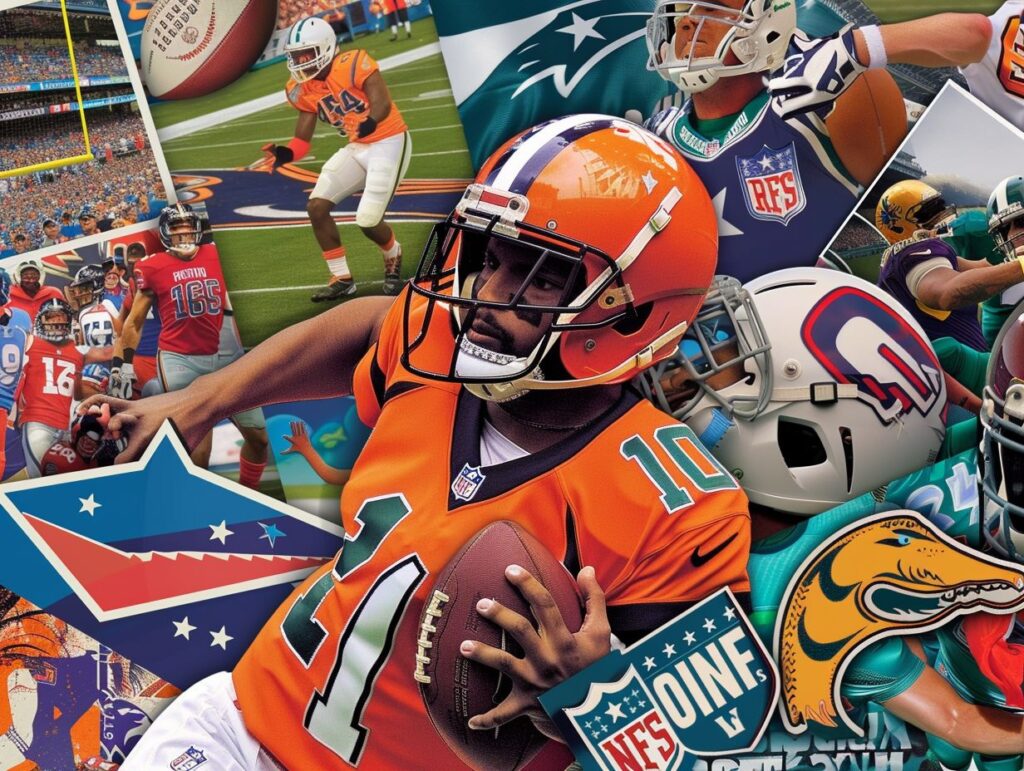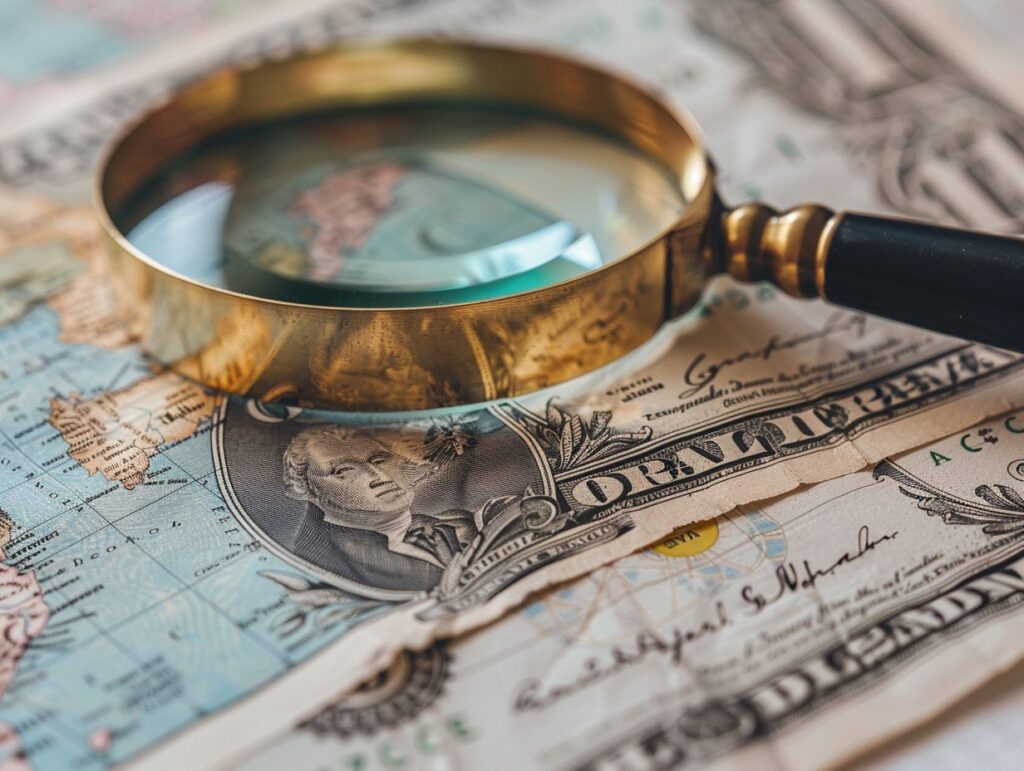Florida’s sports industry is a thriving sector that relies heavily on the protection of intellectual property. From trademarks to patents, intellectual property plays a crucial role in safeguarding the unique assets of sports organizations and athletes.
We will explore the various types of intellectual property, the importance of protecting it in the sports industry, the challenges faced, and case studies of notable disputes in Florida.
Find out how intellectual property benefits the state’s sports industry, driving economic growth and creating valuable branding opportunities.
Key Takeaways:

- Intellectual property plays a crucial role in the sports industry in Florida, protecting the rights of teams, athletes, and organizations.
- Trademark, copyright, and patent protection are essential for safeguarding the unique branding and innovations of Florida’s sports industry.
- Despite challenges such as counterfeiting and unauthorized use of athlete’s likeness, intellectual property helps Florida’s sports industry thrive economically and build strong brands.
Protecting Intellectual Property in Florida’s Sports Industry
In the sports industry in Florida, protecting intellectual property rights is crucial for safeguarding the unique creations and innovations of businesses, athletes, and organizations, ensuring that their commercial value and competitive edge are preserved.
Trademark Protection
Trademark protection within Florida’s sports industry involves securing unique brand identifiers, such as logos and names, under the Trademark Act to prevent infringement and unauthorized use.
This legal safeguard is crucial for establishing brand identity and ensuring consumer trust. By registering trademarks, sports entities can obtain exclusive rights to their intellectual property, enhancing their market position and commercial value.
Trademark protection enables businesses to take legal action against individuals attempting to exploit their brand recognition unlawfully.
In the competitive sports industry landscape, safeguarding trademarks is a strategic imperative that promotes innovation and creativity while also increasing brand loyalty and recognition among fans and consumers.
Copyright Protection

Copyright protection, which is governed by the Copyright Act, is crucial for safeguarding the creative content generated within Florida’s sports industry, including broadcast rights, creative works, and more. By establishing a legal framework that grants exclusive rights to creators, copyright protection aids in preventing unauthorized use or reproduction of their work.
In the context of sports, this protection extends to various aspects such as live event coverage, merchandise designs, and branding materials. These protections not only benefit individual creators but also play an essential role in fostering innovation and creativity within the sports sector.
Legal mechanisms like cease and desist orders and infringement lawsuits serve as deterrents against intellectual property violations, ensuring that content creators and sports organizations can operate in a fair, regulated environment.
Patent Protection
Patent protection plays a crucial role in the sports industry by safeguarding innovative inventions and technological advancements, ensuring that creators can have control over and benefit from their innovations.
With patent protection, inventors in the sports industry are granted the exclusive rights to manufacture, use, and sell their inventions for a specific period. This not only encourages investment in research and development but also fosters a culture of innovation.
Obtaining a patent allows individuals and companies to prevent competitors from imitating their ideas, giving them a competitive advantage in the market. It also enables them to license their patents to other parties, leading to further collaborations and advancements in sports technology.
Challenges in Protecting Intellectual Property in the Sports Industry
Protecting intellectual property in the sports industry presents numerous challenges, such as counterfeiting, piracy, unauthorized use of athletes’ image and likeness, and intricate international legal matters that may impede enforcement effectively.
Counterfeiting and Piracy
Counterfeiting and piracy present significant challenges in the sports industry, leading to substantial intellectual property violations, especially concerning unauthorized sports merchandise and broadcast content.
This illicit behavior not only causes financial harm to legitimate product manufacturers and broadcasters but also raises concerns about consumer safety due to counterfeit items potentially failing to meet quality standards.
The proliferation of digital piracy has facilitated the unauthorized distribution of copies of sports events by infringers, impacting the revenues of sports leagues and broadcasters. To address these issues, organizations in the sports industry are adopting stricter anti-counterfeiting strategies, such as incorporating holograms, RFID tags, and serial numbers on merchandise to validate authenticity and monitor products across the supply chain.
Unauthorized Use of Athlete’s Image and Likeness
The unauthorized use of an athlete’s image and likeness presents a significant challenge in the sports industry, frequently resulting in infringements of intellectual property rights and personal branding.
This issue impacts not only professional athletes but also amateur and collegiate athletes who may lack the legal safeguards or means to address these violations. Unauthorized use of an athlete’s image can damage their reputation and commercial worth, affecting their ability to secure sponsorships and endorsement deals.
In recent years, there have been numerous high-profile instances where athletes have pursued legal action against entities or individuals who utilized their likeness without authorization. This has led to substantial settlements and modifications in regulations aimed at enhancing the protection of athletes’ rights.
International Legal Issues
Protecting intellectual property in the sports industry is complicated by international legal issues, requiring collaboration between entities such as the World Intellectual Property Organization (WIPO) and national authorities for effective enforcement across borders.
The global scope of the sports industry presents unique challenges in preserving trademarks, copyrights, and patents. As the digital landscape expands, threats like online piracy and counterfeiting are on the rise, underscoring the need for countries to cooperate in establishing strong frameworks for intellectual property protection.
WIPO plays a critical role in establishing international standards and fostering discussions among countries to tackle these intricate issues. Cooperation among governments, businesses, and organizations is essential for upholding the integrity and longevity of intellectual property rights worldwide.
Case Studies of Intellectual Property Issues in Florida’s Sports Industry

Analyzing case studies of intellectual property problems in Florida’s sports industry demonstrates the intricacies and legal conflicts that stem from trademark disputes and other IP challenges, offering valuable insights into the enforcement and protection mechanisms that are established.
Tom Brady and ‘Tom Terrific’ Trademark Dispute
The trademark dispute involving Tom Brady and the nickname ‘Tom Terrific‘ highlights the legal complexities athletes face in protecting their personal brand and intellectual property.
Brady, known for his stellar football career, filed for the ‘Tom Terrific’ trademark in 2019, resulting in backlash from fans and New York Mets supporters who associated the nickname with Hall of Fame pitcher Tom Seaver.
The legal battle has raised questions about how public perception can influence trademark disputes, as Brady aims to secure exclusive rights to the nickname for merchandise and endorsements. This case sheds light on the importance of carefully strategizing branding efforts for athletes to avoid potential conflicts and maintain control over their image in the competitive world of sports marketing.
Miami Marlins and ‘Miami Miracle’ Trademark Dispute
The Miami Marlins encountered a trademark dispute concerning the phrase ‘Miami Miracle,’ highlighting the difficulties of safeguarding unique identifiers and branding in the sports industry.
The legal dispute over the ‘Miami Miracle’ trademark emphasized the necessity of securing intellectual property rights in sports. It underscored the need for entities in the sports sector to be proactive in protecting their branding elements to uphold distinct identities.
Ultimately, the resolution of the case underscored the importance of taking preemptive measures to safeguard trademarks and intellectual property for the enduring preservation and recognition of brands among fans and stakeholders.
Jacksonville Jaguars and ‘Sacksonville’ Trademark Dispute
The trademark dispute over the term ‘Sacksonville’ by the Jacksonville Jaguars emphasizes the significance of securing and defending intellectual property rights in the sports industry.
The legal conflict surrounding the ‘Sacksonville‘ trademark showcases the growing recognition among teams and players of the importance of safeguarding their distinct brand identifiers. This particular disagreement revolves around whether the Jaguars hold exclusive rights to the term, which has become closely associated with their strong defense.
Intellectual property safeguards, including trademarks, are essential tools for protecting commercial interests and upholding brand integrity in the competitive sports market. The resolution of this dispute could establish a precedent for intellectual property disputes in the sports sector, influencing how organizations approach brand protection strategies.
How Florida’s Sports Industry Benefits from Intellectual Property
The sports industry in Florida experiences substantial advantages from intellectual property protection. This protection contributes to a notable economic impact, aids in brand development, and generates marketing opportunities that improve the overall value of sports entities.
Economic Impact
The economic impact of intellectual property in Florida’s sports industry is significant, generating revenue through commercialization, sponsorships, and licensing deals that are advantageous for businesses and athletes.
One of the main ways in which intellectual property contributes to the economic growth of the sports industry is through brand building. By utilizing trademarks and copyrights, sports organizations can establish strong brand identities that resonate with fans and drive merchandise sales.
For example, popular sports teams like the Miami Heat or the Tampa Bay Buccaneers have developed global brands that go beyond the field or court, resulting in increased revenue streams from licensing agreements and endorsements.
Intellectual property rights safeguard innovative technology in sports equipment, ensuring that companies can profit from their research and development investments without concerns about competitors violating their designs.
Brand Building and Marketing Opportunities

Intellectual property is essential in brand building and marketing opportunities in the sports industry, allowing entities to utilize trademarks and unique identifiers for increased visibility and commercial value.
Trademark protection ensures that a company’s logo, slogans, and other brand elements are protected from unauthorized use, thus strengthening brand identity and credibility.
For example, the iconic Nike swoosh symbol and the slogan ‘Just Do It‘ are globally recognized trademarks that have become synonymous with the brand’s values and products. This differentiation not only sets Nike apart from competitors but also builds customer trust and loyalty.
Through strategic management of their intellectual property, sports brands can solidify their market position and establish a unique identity that resonates with their target audience.
Frequently Asked Questions
What is intellectual property and how does it impact Florida’s sports industry?
Intellectual property refers to creations of the mind, such as inventions, literary and artistic works, and symbols, names, images, and designs used in commerce. In Florida’s sports industry, intellectual property plays a vital role in protecting and promoting the unique ideas, products, and services associated with sports teams, events, and organizations.
What types of intellectual property are commonly found in Florida’s sports industry?
The most common types of intellectual property in Florida’s sports industry include trademarks, copyrights, patents, and trade secrets. These can protect team names and logos, original broadcasts and written content, innovative technology and equipment, and confidential business information, respectively.
How does intellectual property impact the economic success of Florida’s sports industry?
Intellectual property allows sports teams, organizations, and events to differentiate themselves and create brand recognition, which can attract fans, sponsors, and investors. It also allows for the monetization of unique ideas and products through licensing and merchandising, contributing to the overall economic success of the industry.
How does Florida’s legal system protect intellectual property in the sports industry?
Florida’s legal system offers various avenues for protecting intellectual property in the sports industry, including federal laws such as the Trademark Act and the Copyright Act, as well as state laws and common law principles. Additionally, specialized courts, such as the U.S. Patent and Trademark Office and the U.S. Copyright Office, handle intellectual property disputes.
What are some challenges faced by Florida’s sports industry in regards to intellectual property?
One of the main challenges faced by Florida’s sports industry is the constant threat of intellectual property infringement, particularly in the age of social media and online piracy. The industry must also navigate the complexities of international intellectual property laws and the rapid development of new technologies, which can make it difficult to protect and enforce intellectual property rights.
What are some recent developments in the role of intellectual property in Florida’s sports industry?
Recent developments in technology, such as virtual and augmented reality, have created new opportunities for intellectual property protection in the sports industry. There has also been a growing trend of sports organizations and events using intellectual property to create fan engagement and immersive experiences, such as through interactive apps and virtual reality experiences.























Rate this article:
Average rating 0 / 5. Vote count: 0
No votes so far! Be the first to rate this post.
No Comments yet!